Best Ways to Prevent Skin From Aging
Our skin is affected by two types of aging: intrinsic aging – which is our skin naturally losing its youthful fullness with the passing of time and extrinsic aging which occurs when either our lifestyle choices or our environment causes our skin to show signs of aging earlier than it should.
The main cause of both types of premature aging is free radical damage. Free Radicals are produced in our bodies by the air we breathe. To see how fast it can happen, cut an apple in half and watch how fast it turns brown. Over time, free radicals play a role in developing skin damage including lines and wrinkles, and many health conditions such as cardiovascular disease, cancer and more.
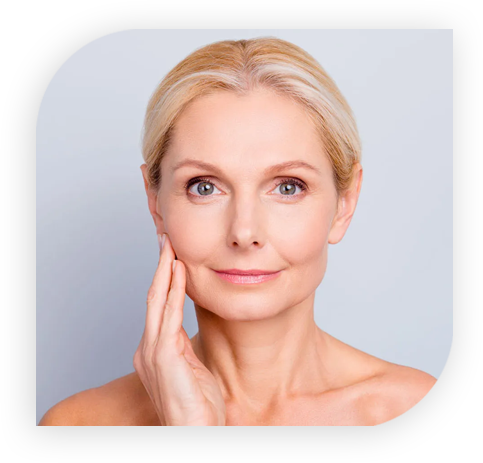
Increased exposure to pollutants, UV radiation, and toxic chemicals can ramp up free radical production. While you can’t do much about the pollution around you, you can limit the number of toxic chemicals you’re exposed to in your beauty products, and use antioxidant products that fight free radical damage.
Many of today’s skincare product manufacturers use ingredients that not only fail to nourish and soothe skin as they promise in their advertising, but they can actually worsen its condition, leading to more wrinkles, fine lines, dryness and skin irritation.
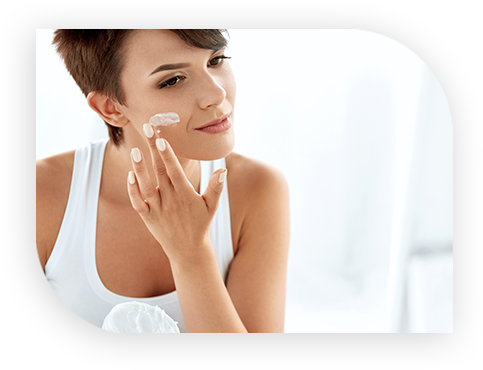
How to Fully Address Premature Aging Skin
There are three ways to slow down premature skin aging:
Limit Your Exposure to Toxic Ingredients
Here’s an example of a few of many toxic ingredients that you must avoid if you want to be good to your skin.
Airborne Chemicals Can Also Age Your Skin
Volatile organic compounds (VOCs) are common in the air we breathe, and is also released by the scent of many household products. As we walk around our house these chemicals accumulate on our skin and begin to attack our skin’s collagen, and our protective skin barrier that helps us retain water, which can cause wrinkles.
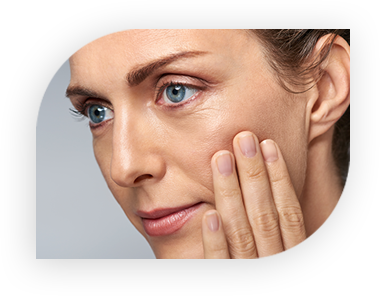
Infuse Your Skin With Ingredients That Combat Free Radical Damage
The Mayo Clinic reported that vitamin C is a nutrient your body needs to form blood vessels, cartilage, muscle and collagen in bones. Vitamin C is also vital to your body’s healing process.
Because your body doesn’t produce vitamin C, you need to get it from your diet, vitamins or topical creams.
Vitamin C has been clinically proven to reduce or prevent the
following skin conditions:
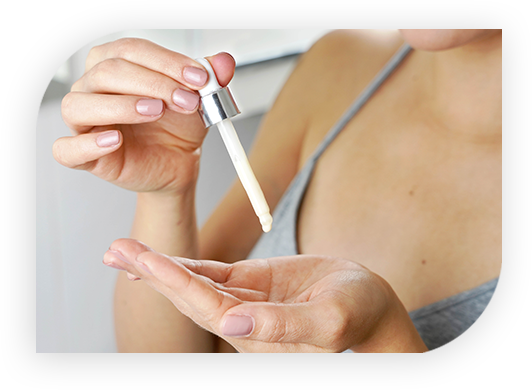
Recommended
2 Best Anti-Aging Serums
2 Best Anti-Aging Serums
The Tradional Gold Standard Topical Cream Including Vitamin C is Skinceuticals C E Ferulic
A Dec 17, 2021 article published by Byrdie, written by Jenna Igneri, concluded the following:
“We put SkinCeuticals C E Ferulic to the test after receiving a complimentary sample from the brand. Keep reading for our full product review.
Let me put it this way: “SkinCeuticals’ C E Ferulic isn’t just a vitamin C serum. It is the vitamin C serum. Since it launched in 2005, dermatologists and beauty editors alike have sworn that its formula – which features vitamin C, vitamin E, and ferulic acid – is the stuff skin dreams are made of. The hype is real.”
Ingredient Quality: Vitamins C and E join forces with ferulic acid
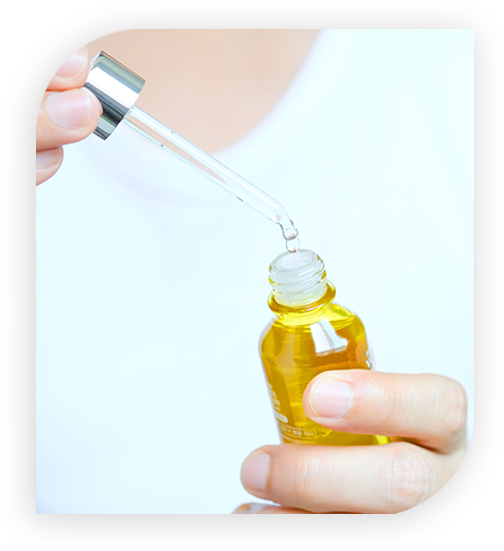
SkinCeuticals lists three ingredients as key players in this serum: 15% L-ascorbic acid, a highly potent form of pure vitamin C that neutralizes free radicals, protects against oxidative stress, and provides visible anti-aging benefits; 1% alpha-tocopherol, the pure form of vitamin E that works together with vitamin C to neutralize free radicals and replenish the skin’s lipids; and 0.5% ferulic acid, a plant-based antioxidant that neutralizes free radicals and enhances the antioxidant benefits and stability of vitamins C and E.
While these ingredients are spread out on the ingredient list, the brand lists the concentration of each – and even though some are in small concentrations, these ingredients are potent! However, C E Ferulic is not considered clean by Byrdie’s standards due to its inclusion of triethanolamine.
The Results: A visibly smoother,
brighter complexion
I can’t stress enough how much I love this product. By the end of my three-week testing period, my skin was visibly smoother, plumper, and brighter. While I didn’t notice any immediate results on the first day of use, I began to notice changes in my skin’s texture by day three – it felt smoother and significantly more hydrated.
By the time I was done testing, my glow was undeniable – it was as if I was reborn!
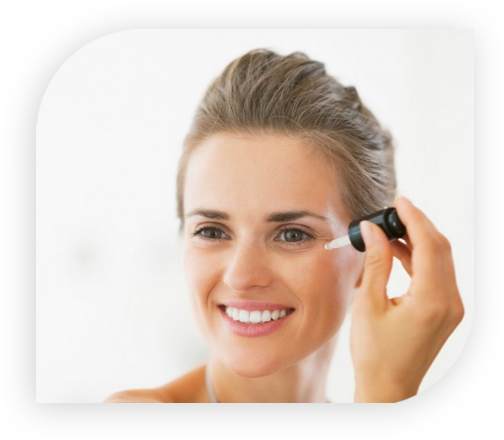
The Value: Worth the investment
C E Ferulic is definitely expensive, ringing in at $166 per fluid ounce, but a little goes a long way (only about 4-5 drops are needed per application). In my opinion, it’s worth the price – it really delivers results. Not only will it breathe new life into your skin, but the bottle will last you. Just pay attention to expiration dates and look out for any oxidation.”
Lower Cost Timeless Vitamin C Serum Vs
SkinCeuticals Vitamin C Serum (Which Is Best?)
SkinCeuticals Vitamin C Serum (Which Is Best?)
This comparison review was published Feb 8, 2022, by Beauty Spark Review and written by Anselem.
“Just like SkinCeuticals, Timeless vitamin C serum contains similar ingredients which are; 20% vitamin C, to counteract external and internal free radicals, brighten skin tone, thereby addressing pigmentations, boost collagen production which in turn minimizes skin aging-signs.
It also contains 1% vitamin E, a powerful vitamin and antioxidant which neutralizes free radicals, replenishes skin lipids, helps nourish and protect your skin from damages caused by free radicals, and 0.5% Ferulic acid which not only offer anti-aging benefits to your skin but also helps enhances the potentials and stability of other antioxidants for more efficacy and better results.
It also contains sodium hyaluronate (a salt form derivative of hyaluronic acid) which helps hydrate the skin by attracting moisture from the atmosphere into the skin to keep the skin hydrated, plump and supple.”
The packaging is luxurious and fancy. It comes in an air-tight pump and yellow-tinted container for easy dispensing. Previously, Timeless 20% Vitamin C + E Ferulic acid serum came in a bottle with a dropper (just like regular vitamin C serums) but due to easy oxidization of vitamin C when exposed to air, made them change the packaging by adopting the air-tight pump and yellow-tinted container not only to protect the liquid gold in the container, but also for easy usage.”
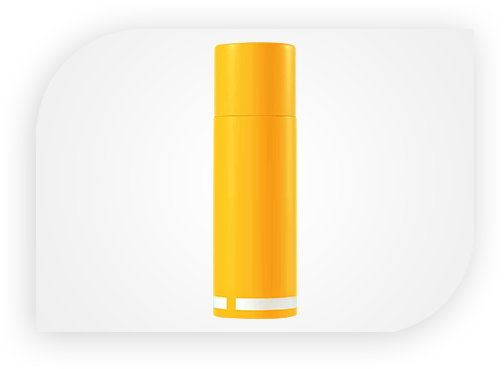
My Review & Results On Timeless Vs
SkinCeuticals Vitamin C Serum.
Both are great vitamin C serums. Potent and offers antioxidant potentials to the skin. In my test experiment, I applied both serums on each my cheeks. (Timeless 20% Vitamin C + E Ferulic Acid serum on the left cheek, while SkinCeuticals C E Ferulic on the right side). They both made an impact on my skin texture and radiance.
For example: My leftover acne scars on my both cheeks appeared much lighter in appearance. I noticed both skin areas looked more plump and glowy. My skin texture (on my cheeks area) looked better, plump and firm. I used both serums in day-time and night-time on each cheek to get a precise review. I didn’t forget to apply my sunscreen during the day, so you shouldn’t too. It’s very important in your skincare routine.
I wholeheartedly recommend any of these serums if you want to enjoy the potentials of vitamin C to your skin. Both serums do what they promised, just that the difference is, Skinceuticals contains 15% vitamin C at a $166 price tag while Timeless contains 20% vitamin C at $25 (budget-friendly) price.”




